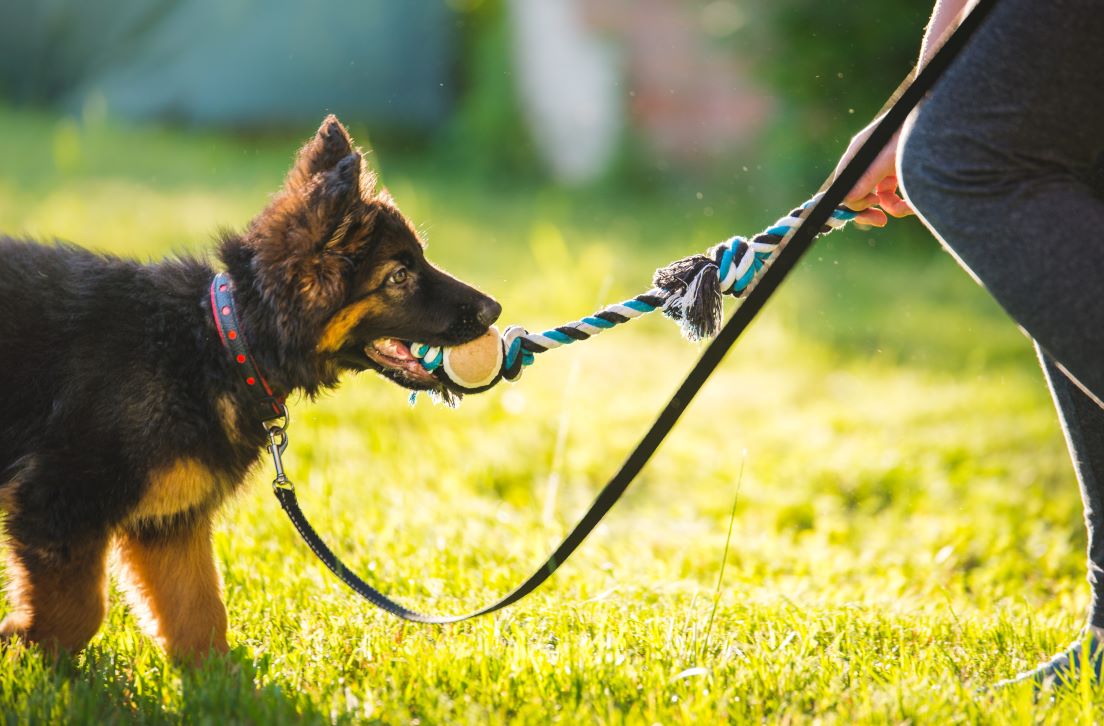Welcoming a new puppy into your home brings joy and excitement, but it also comes with the responsibility of ensuring their health and well-being. One common issue that many puppy owners encounter is the new puppy has diarrhea. While occasional loose stools can be normal for puppies adjusting to new environments or diet changes, persistent or severe diarrhea requires attention. In today’s article, we explore some general digestive health tips and provide guidance on how to handle diarrhea issues in your new puppy.
Understanding Digestive Health in Puppies
A puppy’s digestive health is a vital aspect of their overall well-being. As a pet owner, it is crucial to grasp the fundamentals of digestive health to ensure your faithful friend’s proper development and happiness. From choosing the right diet to establishing a feeding routine, several factors contribute to maintaining a healthy digestive system in puppies. We want all of our customers to understand the key aspects of promoting optimal digestive health in their beloved puppy, setting them on the path to a vibrant and thriving life.
A healthy digestive system is essential for a puppy’s overall well-being. Here are some key factors to consider:
- Diet: Proper nutrition is the foundation of good digestive health. Choose a high-quality puppy food that meets their nutritional needs and is appropriate for their age and breed. Avoid sudden changes in diet, as this can upset their digestive system. Gradually transition to a new food by mixing it with the old one over several days.
- Feeding Schedule: Establish a regular feeding schedule for your puppy. Puppies typically require several small meals throughout the day. Follow the feeding guidelines provided by your veterinarian or the food manufacturer to ensure you’re offering the right amount of food for your puppy’s size and age.
- Hydration: Ensure your puppy has access to fresh, clean water at all times. Proper hydration is crucial for maintaining healthy digestion.
- Parasite Prevention: Parasites like worms can disrupt your puppy’s digestive system. Follow your veterinarian’s recommendations for deworming and preventative measures to protect against intestinal parasites.
Dealing with Diarrhea
If your new puppy has diarrhea, it’s important to take prompt action to address the issue and prevent dehydration or further complications. Here are steps to follow:
- Assess the Situation: Determine the severity and frequency of the diarrhea. If it’s a one-time occurrence or a mild case with no other concerning symptoms, you can try some home care measures. However, if the diarrhea is persistent, severe, or accompanied by other worrisome signs such as vomiting, lethargy, or blood in the stool, it’s crucial to consult your veterinarian for a proper diagnosis and treatment.
- Provide Plenty of Water: Diarrhea can quickly lead to dehydration, so make sure your puppy has access to fresh water. Encourage them to drink, but avoid forcing them if they show no interest. If they refuse water or seem excessively thirsty, seek veterinary attention promptly.
- Temporary Dietary Changes: Consider feeding a bland diet to help soothe your puppy’s digestive system. This can include boiled chicken or lean ground turkey with plain, cooked rice or boiled sweet potato. Gradually reintroduce their regular puppy food after a few days of improvement.
- Probiotics: Probiotics are beneficial bacteria that can help restore the balance of the gut flora. Talk to your veterinarian about appropriate probiotic supplements or ask if they recommend adding a small amount of plain, unsweetened yogurt with live cultures to your puppy’s diet.
- Avoid Medications Without Veterinary Guidance: Over-the-counter anti-diarrheal medications meant for humans may not be suitable for puppies. It’s best to consult your veterinarian before administering any medication to ensure it is safe and appropriate for your puppy’s condition.
- Follow Veterinary Advice: If the diarrhea persists or worsens, or if your puppy shows other concerning symptoms, contact your veterinarian for guidance. They may recommend diagnostic tests to identify the underlying cause of the diarrhea and prescribe specific treatments if necessary.
Monitoring Stool Consistency: What to Look For
Paying attention to your puppy’s stool consistency can provide valuable insights into their digestive health. While some variation is normal, consistent diarrhea or changes in stool patterns may indicate an underlying problem. Consult your veterinarian if you notice prolonged loose stools, blood in the stool, or other abnormalities.
Proactive Puppy Health: Prevention and Care
Ensuring the health and well-being of your puppy goes beyond addressing immediate concerns. Taking a proactive approach to their care sets the stage for a lifetime of good health and happiness. By implementing preventive measures and practicing responsible pet care, you can safeguard your puppy’s overall well-being and mitigate potential health risks. In this section, we will explore essential strategies for proactive puppy health, including proper nutrition, vaccinations, regular veterinary check-ups, exercise, and mental stimulation. With these proactive measures in place, you can give your puppy the best start in life and promote their long-term health and vitality.
- Consistent Diet: Stick to a high-quality puppy food that meets their nutritional needs. Avoid sudden diet changes and gradually transition to new foods to minimize the risk of digestive upset. It’s generally best to avoid giving the puppy table scraps and human food. Keep your puppy away from household chemicals, toxic plants, and other substances that can be harmful if ingested. Puppy-proof your home to minimize their access to potentially dangerous items.
- Hygienic Practices: Ensure cleanliness by regularly cleaning food and water bowls, washing your hands before handling their food, and keeping their living area clean. This helps prevent the ingestion of harmful bacteria.
- Minimize Stress: Puppies can be sensitive to stress, which can contribute to digestive issues. Create a calm and nurturing environment, provide them with plenty of mental and physical stimulation, and ensure they get sufficient rest.
- Regular Veterinary Check-ups: Schedule routine wellness visits with your veterinarian to monitor your puppy’s overall health. These visits provide an opportunity to discuss any concerns about their digestive system and receive professional guidance. Follow your veterinarian’s recommended vaccination and deworming schedule. This helps protect your puppy from diseases and parasites that can cause gastrointestinal problems.
Remember, every puppy is unique, and their digestive system may have different sensitivities. If you have any concerns or questions about your puppy’s digestive health or diarrhea, it’s always best to consult with your veterinarian. They can provide specific advice and guidance tailored to your puppy’s needs.
By maintaining a healthy diet, practicing good hygiene, and seeking veterinary care when necessary, you can promote good digestive health in your new puppy. With proper care and attention, you’ll help your furry friend grow into a happy and healthy adult dog.




